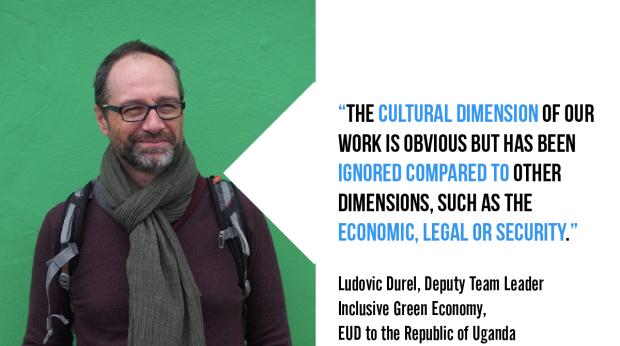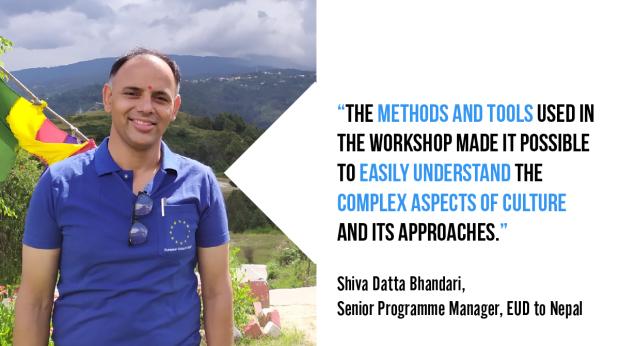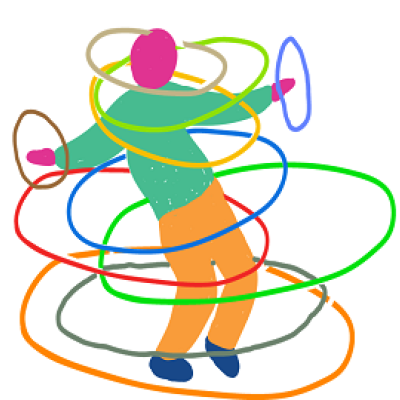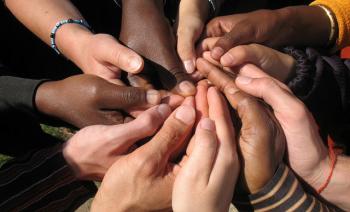International partnerships, being multicultural in nature, often face cultural differences which can generate misunderstandings, tension, and inefficiency. There are both tangible and intangible cultural barriers in EU interventions limiting the capacity to work with internal and external teams. As a result, the quality of policy dialogue and interventions management is hindered, and thus results and relationships are affected. To deal with this situation, solutions are needed.
In the spirit of Sustainable Development Goal 17 and in line with the DG INTPA’s geo-political priorities, the Methodological and Knowledge Sharing Support for EU External Interventions programme1 (MKS) funds the InterCultural Approach Programme (ex-InCA), an interdisciplinary action-research programme. Ex-InCA aims at increasing the effectiveness of EU external policies and interventions through culturally sensitive partnerships with countries and implementing organisations. This is achieved by:
- EUD staff developing cultural awareness and an intercultural capacity to work better together, internally and externally;
- facilitating Headquarters (HQ) - EU Delegations (EUDs) collaboration by devising intercultural reflection to inspire new methods and tools relevant for EU-funded programmes, projects and thematic challenges in different cultural contexts;
- increasing the quality of the policy dialogue for a renewed partnership with local authorities, implementing partners and all external stakeholders, i.e. EU Member States;
- enriching EU internal institutional capacity as a leading international organisation.
InCA has been developing a series of intercultural approach-based activities that give value to cultural diversity as a strategy for effectiveness and results. EU staff who have participated in learning laboratories and modular workshops share their lessons learnt and highlight the added value of InCA in improving internal working methods, and therefore external partnerships.
Lessons learnt from the ex-InCA Programme:
- Increased cultural diversity awareness can lead to better contextualisation
- Questioning your practices and overcoming your biases transforms cooperation into partnership
- EU staff’s work at Delegations and Headquarters can be improved with InCA’s methodological tools
The intercultural approach is a way of thinking, working and acting. It is a lens through which someone can see the world and its interactions by taking into consideration the different cultural identity, background, feeling of belonging and experiences of oneself and others. Ex-InCA values these different cultural layers for a higher quality and effectiveness of working methodologies.

Maria Cristina Araujo von Holstein Rathlou, Result Oriented Monitoring Focal Person (ROM) at the EUD to Brazil, explains that “for a continental-sized country like Brazil, this reflection is very useful because in the EU cooperation we have partners with different cultural backgrounds and heterogeneous religious belongings from all regions. They are so diverse ranging from the business community in Sao Paulo and Rio Grande do Sul States to indigenous people of the Amazon and the Northeast regions.”
By grasping these differences and becoming aware of the various cultural influences, it is easier to understand and contextualise the perceptions and perspectives of our partners.
2. Question your practices and overcome your biases
The cultural dimension is undoubtedly an essential requirement for a paradigm shift from development cooperation to a renewed partnership based on mutual understanding and respect for each other's values and interests.

Reflecting on and fostering intercultural sensitivity is essential to the daily practices of EU staff in support of partner countries, especially in Africa where the dimensions of EU interventions are multiple. As Ludovic Durel, Deputy Team Leader at the EUD to the Republic of Uganda, explains “our prejudices about Africa have been created by the media and unfortunately sometimes by our own training. We should consider dialogue with our partners with a greater openness, while making ourselves available to get to know each other and discover their ideas.”
Furthermore, the InCA approach allows development professionals to reflect on the models they implement in the host countries which are potentially biased, sometimes not locally adapted, or simply ineffective. That is why knowing, or being open enough to try to understand the existing economic models of the host society, is extremely important. Ludovic Durel continues “we should question our development practices by reinforcing the contextualisation of our approach on the basis of a real dialogue and not only of data produced by international agencies. This would allow us to avoid the contradiction between our interventions which often conflict or even sometimes cancel each other out.”
3. Methodological tools are available and can support EU staff at Delegations and Headquarters
The ex-InCA programme has devised relevant intercultural working methods and tools to analyse, design and manage EU external interventions to achieve better, more culturally appropriate results. These are presented and explored during ex-InCA laboratories and workshops.
“The methods and tools used in the workshop made it easy to understand the complex aspects of culture and its approaches. The presentation of concepts and self-reflection helped increase knowledge, change positions and attitudes”, says Shiva Datta Bhandari, Senior Programme Manager, EUD to Nepal.

A tool used during ex-InCA workshops is the Logical Framework Matrix (LFM) which includes two dimensions: (a) the cultural and technical dimension; (b) the communication and terminological dimension. The first dimension encompasses the cultural-technical aspects (notably the notion of change, time-causality and engagement related to the results chain) while the second analysis-dimension highlights the communication-terminological characteristics, notably the dynamics related to “mutual understanding” as well as the different semantic meanings that LFM’s official definitions could trigger in different cultural contexts.
According to Maria Cristina Araujo von Holstein Rathlou, the notions of time and terminologies are relative: “Time has a different cultural notion from urban areas to the Amazon region where indigenous communities are collectors and highly dependent on seasons for their economic activities. Whereas in the south and southeast regions of Brazil, which have a large European migrant population, the notion of time is closer to the EU cultural concept, mainly, as in the urban areas.” The same applies to terminology. She continues “terminology should have a common ground of understanding by all stakeholders, partners, EUD colleagues, as a word may have a different meaning depending on the cultural context … in Brazil, for example, the word and the meaning of “gender” has been subject of a conservative narrative which is totally different from the one which is used in our EU funded projects and interventions.”
What are the next steps?
Following the piloting phase, requests submitted by EU Delegations for ex-InCA support are assessed. The goals are to assure methodological alignment between our operational methods and the International Partnership priorities, and to define the appropriate services and activities. If you are working at a Delegation or HQ and observe some cultural challenges internally and/or externally; or, if you are curious to know more or even possibly experience an InCA learning lab, please contact INTPA/D4 - INTPA-ICM-GUIDE@ec.europa.eu.
Click on the play button below to watch our video on the InCA Programme:
Have you been involved in relevant interventions for the promotion of intercultural awareness and skills?
What were the main lessons you learnt?
Leave your comment below!
|
More about the ex-InCA Programme
Additional resources |
Credit: Video © Capacity4dev






Log in with your EU Login account to post or comment on the platform.